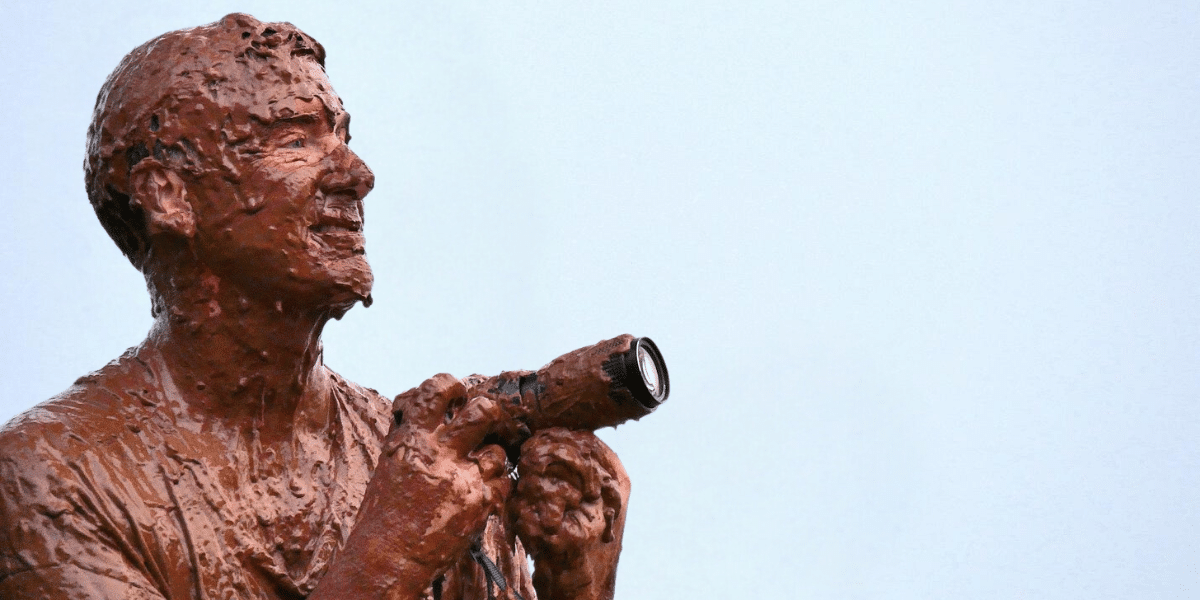In a world where differences are accentuated, they become a weapon that alienates and divides. But when we discover that our similarities are greater than our differences and much more essential to the human experience, we find the recipe for world peace and equity. The fact that we are all suffering for the same reasons is an opportunity to unite. These thoughts, shared by Dr. Rick Stevenson, a seasoned filmmaker who interviewed over 7,000 people from all over the world, resonate now more than ever before.
The world is home to 197 countries, over 7,000 languages, and nearly 8 billion people. Though, on the surface, differences are more pronounced than similarities, delving deeper into the human experience unearths a realm where unity and shared experiences are paramount. Dr. Rick embarked on a mission to help people identify their human arc, reaching beyond the confines of language barriers, racial divisions, and cross-continent borders.
Dr. Rick’s 5,000 Days Project, which is roughly the time it takes to go through school, has led him to interview thousands of kids and adolescents aged five through 18 across six continents. After the first interviews in 2001, which transformed and shaped Dr. Rick’s life path, he began speaking to adults and exploring childhood traumas. To date, Dr. Rick has held over 7,000 one-on-one interviews with people of all ages, genders, and backgrounds, a testament to his all-encompassing expertise.
A realization that altered Dr. Rick’s previous world perception, one fueled by generational stigmas and misconceptions, was that people from around the world, regardless of their livelihoods, grapple with exactly the same emotional challenges. Depending on one’s situation, these struggles can be experienced on a different scale, but the underlying difficulties are the same.
Complementing Dr. Rick’s search for similarities was his quest to identify differences. While interviewing children on six continents, he noticed that polarity often lies in aspirations, “When a kid in North America is asked to share three wishes, they might say, “I want world peace, I want to cure cancer, and I want unlimited money.” When interviewing orphans in less developed countries, the wishes reflect the scope of their experience, with children hoping for a bicycle, a place to sleep, or security.”
One of Dr. Rick’s most meaningful endeavors is a project offering orphans a chance to verbalize stories, fears, hopes, and struggles. What started from an out-of-the-blue letter from a lady asking Dr. Rick to bring the 5,000 Days Project into Cambodia turned out to be one of the most rewarding and impactful decisions of Dr. Rick’s life.
“In a country grappling with a history of genocide, where generations after generations have lost parents and families to diseases and wars, children have nothing. They have traveled through the depths of hell, and they have no one to tell their stories to. We have seen the inner change and empowerment after Cambodian orphans had a chance to open up. That’s what made us realize that emotional intelligence should not be reserved for those who can afford it.”
Enriching Dr. Rick’s philanthropy journey is The Human Arc, his nonprofit foundation that restores hope by helping people identify their own arcs and leading them toward the pot of gold waiting at the end of the rainbow. Moreover, half of the interviews in the 5,000 Days Project are donated to those who can’t afford it, opening the doors for disadvantaged communities to have a chance to have a voice.
Underneath years of effort, traversing the world, and listening to impactful stories lies Dr. Rick’s mission. That mission, inspired by his experiences, was born when he felt the healing impact of letting go of trauma through verbalizing and nurturing emotional intelligence. “When I was finally able to honestly say that I had control of my emotions, I met Julie, and she changed my life. I fell in love with her, and then with Max and Maddie – Julie's children from a previous relationship. Then we had Oliver and adopted Leah, and finally, after I turned 40, I had everything I had ever wanted. I decided to stop traveling, settle, and protect the treasure I had at home.”
That decision sparked the conceptualization of the 5,000 Days Project. What started from a humble goal of documenting an authentic portrait of childhood by interviewing kids in Seattle morphed into a global mission. What helped Dr. Rick discover his purpose were two interviews separated by mere weeks and a world-changing moment—9/11. Speaking to two children grappling with issues pre- and post-9/11 changed Dr. Rick’s perception, leading him to realize that the 5,000 Days Project had the power to arm children to face an uncertain world.
Looking into the future, Dr. Rick envisions a world where the 5,000 Days Project and the StoryQ Method – Dr. Rick’s refined scheme reshaping the way interviews are guided – are implemented into schools and workplaces, offering everyone a chance to verbalize emotions and memories.
“Everybody has a story to tell. I was setting up to interview a four-year-old Muslim boy when I noticed that he looked deeply upset. I asked him what was up and he shared that he’d just discovered the girl he was going to marry no longer wanted to marry him. I asked him how he knew that and he replied, ‘At recess, she came up to me, pushed me down on the ground, and said, “I no longer want to marry you.” I nodded and agreed that she’d made her wishes quite clear. I then sat back and marveled over the next several minutes as this little boy verbally processed his pain better than I did. Then, at the end of this outpouring of sadness, he grinned and said, “But there’s this other girl…” Whether it is a four-year-old tearing up because of an ended kindergarten relationship, a teenager grappling with self-discovery, or adults trying to overcome the excruciating pain of grief, it is my mission to help people discover the healing and revelatory power of verbalizing their own stories,” Dr. Rick assures. “We live in an uncertain world and the best way to face an uncertain future is to create it. We may all be the product of our past but we are also the authors of our future. Think of the possibilities.”
Published by: Holy Minoza









